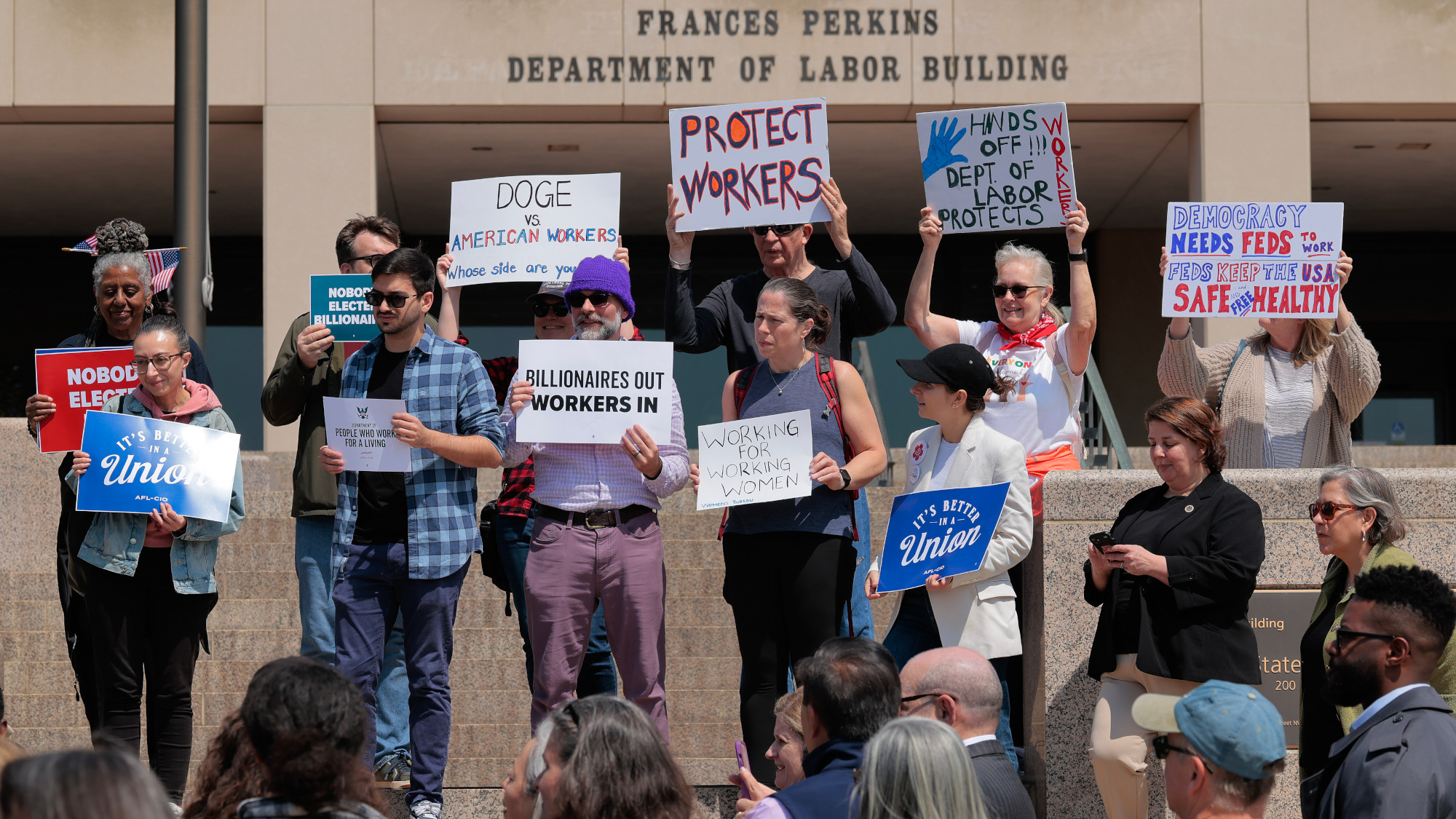Labor: Federal unions struggle to survive Trump
Trump moves to strip union rights from federal workers

A free daily email with the biggest news stories of the day – and the best features from TheWeek.com
You are now subscribed
Your newsletter sign-up was successful
Federal workers are seeing hard-won union rights disappear overnight, said Eileen Sullivan in The New York Times. Just before Labor Day, Trump signed an executive order “stripping union rights from thousands of employees” at six federal agencies, including the National Weather Service and NASA. It follows a similar order signed in March directing 22 agencies “to ignore contracts for employees in specific unions.” Trump said the issue was a matter of “national security,” because provisions in their labor contracts “could interfere with his policies.” The impact will be felt broadly. Federal workers who lost rights “can no longer fight agencies over contract violations,” such as Trump’s order that all federal employees return to full-time office work, and many will see reductions to benefits like parental leave and meal allowances, and to safety protections. Labor historians predict that for Trump this is a prelude to broader attacks on private-sector unions.
Sorry, but you just can’t equate the powerful federal unions with the private sector, said John Fund in National Review. “None other than Franklin Delano Roosevelt” believed strongly that “collective bargaining agreements were incompatible with public sector workforces,” which are, at their essence, employed by the American taxpayer. Today, the federal government “spends hundreds of millions of taxpayer dollars on collective bargaining,” and union power has made “efforts to reform the civil service impossible.” Whatever one thinks about private unions, “the case for equal privileges for government workers is nonexistent,” said the Washington Examiner in an editorial. When “government unions are allowed to set pay and working conditions through collective bargaining, they limit the power” of voters to determine “the public goods paid for by their taxes.” Consider the deal signed by the Social Security Administration in the closing days of the Biden administration “guaranteeing that 42,000 staff members would not have to return to the office.” That was designed specifically “to thwart the governing intentions” of the elected Trump administration.
Government workers are the core of “organized labor’s power base,” said Erik Loomis in The New York Times. But “based on Trump’s actions this year—and without any notable pushback from supposedly pro-labor Republicans like Sen. Josh Hawley—it is unlikely that there will be any unionized federal workers outside of policing agencies” by 2029. In the private sector, unions represent only 6% of workers, so killing civil service unions is an assault on the labor movement’s “very existence.” And still we “have barely heard a peep from unions.” Labor leaders love to say that workers have the ultimate power because they can “withhold their labor.” So where is the mass mobilization effort? If unions are going to survive “the most ruthlessly anti-labor president since before the Great Depression,” it’s going to take more fight.
The Week
Escape your echo chamber. Get the facts behind the news, plus analysis from multiple perspectives.

Sign up for The Week's Free Newsletters
From our morning news briefing to a weekly Good News Newsletter, get the best of The Week delivered directly to your inbox.
From our morning news briefing to a weekly Good News Newsletter, get the best of The Week delivered directly to your inbox.
A free daily email with the biggest news stories of the day – and the best features from TheWeek.com